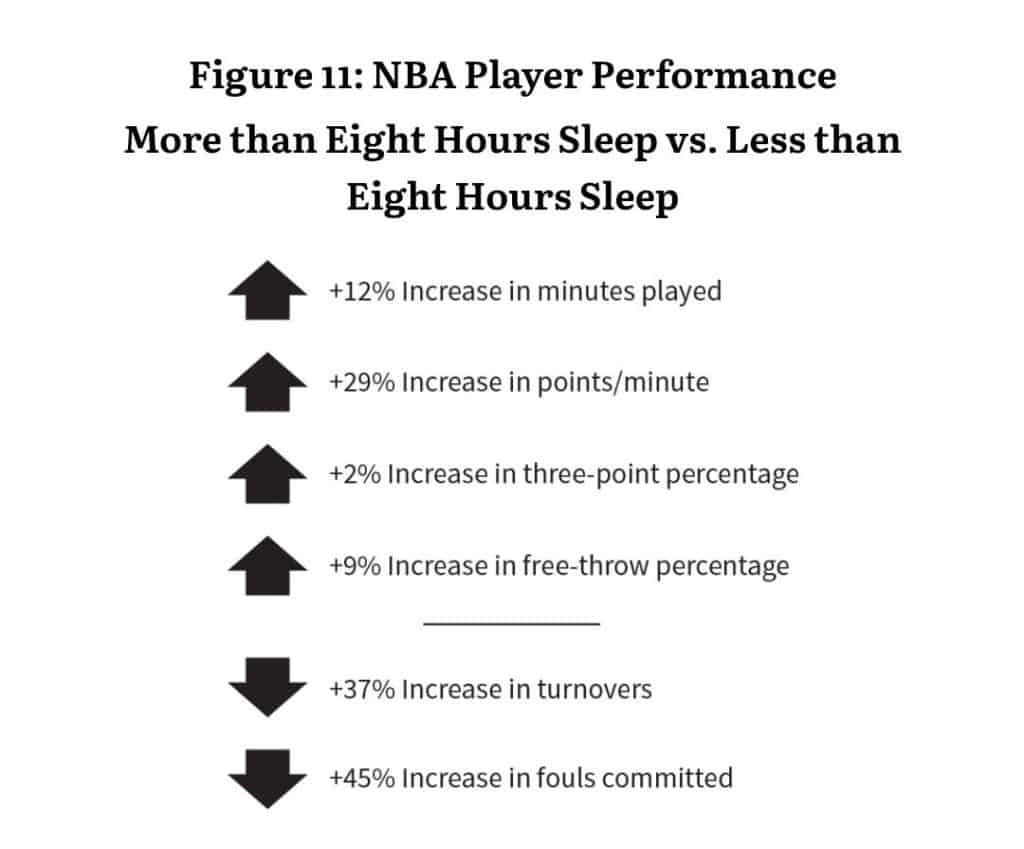The Importance of Sleep for Athletes: Enhancing Performance and Recovery

Sleep is a crucial part of our lives. As individuals with busy schedules, we often overlook its importance. But, when it comes to athletes and those engaged in high-intensity physical activities, the need for quality sleep becomes even more critical.
Why Is Sleep Essential for Athletes?
When athletes train, they create micro-tears in their muscles. When we sleep, our bodies repair these micro-tears, leading to stronger and bigger muscles. This process is partly fueled by the release of growth hormone, which occurs mainly when we’re asleep. You may already know the importance of protein for muscle recovery – but did you know that your sleep could be just as vital? Learn more about the recommended protein intake for athletes.
The Impact of Sleep on Performance

Quality sleep also significantly impacts our cognitive functions, which are vital for athletes. A well-rested brain is more focused, makes better decisions, and reacts more quickly – all key factors in delivering a top athletic performance. Just like you perform certain exercises for your specific sport, ensuring good sleep hygiene can enhance your mental agility in the field.
Sleep Requirements for Athletes
While the standard advice for adults is to aim for 7-9 hours of sleep, athletes may need more. Some experts recommend athletes get 8-10 hours of sleep per night to accommodate the increased need for recovery. Remember, these are just guidelines and individual requirements can vary.
To ensure you’re getting enough sleep, consider tracking your sleep duration and quality, and note any correlations with changes in performance. It’s also essential to pay attention to your diet. Healthy meal prep and nutrition can significantly impact the quality of your sleep. For inspiration, check out these meal prep tips for athletes.
Consequences of Sleep Deprivation
Sleep deprivation can lead to decreased performance, impaired recovery, and increased risk of injury. It can also compromise the immune system, making athletes more susceptible to illness.
A case study from Andre Iguodala taken from Matthew Walker’s Book – Why We Sleep can be seen to the right. Those are some pretty significant differences if you ask me!

Improving Sleep Quality: A Game Plan
Start by setting smart fitness goals that include a target for sleep. Your smart fitness goals should encompass all aspects of your health, including adequate rest.
Hydration is also crucial. Drinking water can improve sleep quality by preventing night-time dehydration, which can cause sleep-disrupting cramps. Here’s a guide on why you should drink more water.
If you’re having trouble balancing all these aspects of athletic life, consider seeking professional help. An online coach can provide a comprehensive plan that fits your needs, which includes exercise, diet, and sleep.
Remember, as an athlete, your bedtime isn’t just downtime. It’s an essential part of your training regimen. Make the most of it to ensure you’re performing at your peak!
